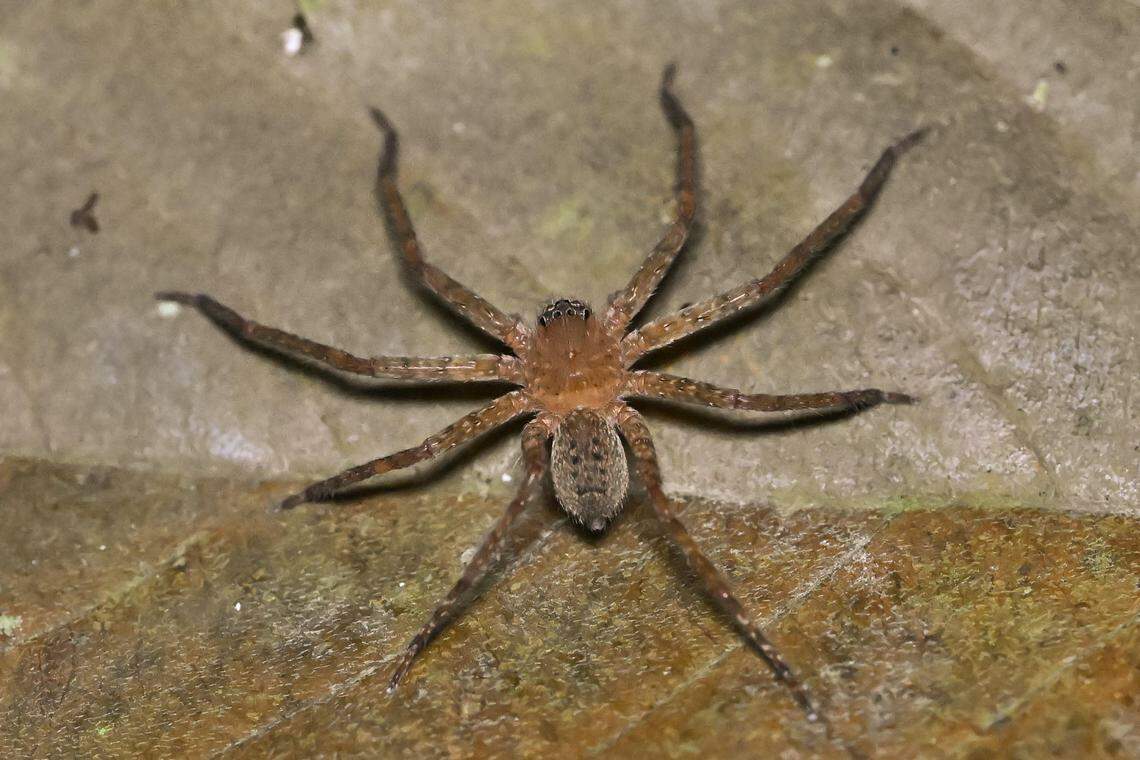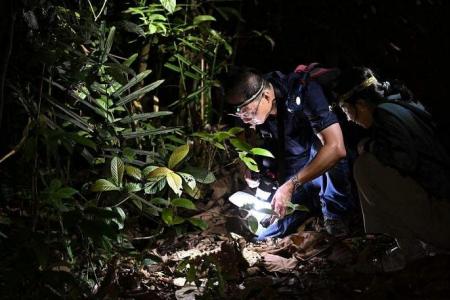6 things you need to know for that night walk in Singapore’s parks
In April, The Straits Times joined Singapore’s spidermen, Mr Joseph Koh and Mr Chris Ang on a night walk in the northern part of the island in search of nocturnal arachnids.
Journalists Ang Qing and Gena Soh unpack what adventurers need to know before they take a similar night walk in Singapore’s nature areas.
1. Carry a strong light source
A torchlight or headlamp of about 800 lumens should suffice. This will come in handy when trying to detect night creatures by their glowing eyes.
This visual effect, known as eyeshine, occurs when light rays are reflected by a special membrane in some animals’ eyes called tapetum lucidum, or light tapestry.
The reflective surface can be found in the eyes of both vertebrate and invertebrate animals typically active at night. Such animals include snakes and spiders.
The presence of this membrane lets animals see more accurately in dimly lit settings.
Often, the first part of an animal that can be seen is its eyeshine. The size and colour of a species’ eyeshine are useful clues for hikers identifying what they might be looking at. For instance, an orange sparkle barely the size of a pinprick likely belongs to a huntsman spider.

Because eyeshine is reflected at the light source, hikers must usually be directly behind the light to spot the glow.
Avoid shining the light at the animal’s eyes for too long as it might startle it.
2. Check the location’s opening hours
The opening hours of Singapore’s green spaces are stated on the National Parks Board’s website.
It is prohibited to enter Singapore’s nature reserves past 7pm. Those who enter parks and nature reserves after closing hours can be fined up to $2,000 under the Parks and Trees Regulations.
Most parks in Singapore remain open after 7pm, such as Bishan-Ang Mo Kio Park.
3. Read up on nocturnal wildlife
Get to know which species in Singapore are active at night and where you can find them. This will help prepare adventurers to look out for certain animal behaviours and habitats.
Some nocturnal creatures commonly seen in the forests are the common palm civet and nightjars.
4. Stick to designated trails
Some parks that are open at night are located near nature reserves. These protected areas tend to harbour endangered plants, so if hikers wander off the trail, they run the risk of trampling on those saplings.
Unmarked paths in forested areas that cut through former kampungs and plantations can also be littered with metal debris, posing a danger to hikers.
5. Take only photographs
It is illegal to kill, trap, take or keep any wildlife. Those who do so to protected wildlife risk getting fined up to $50,000 or jailed for up to two years, or both. Those who kill, trap, take or keep other wildlife face a fine of up to $10,000, imprisonment for six months, or both.
Avoid making noise. This might disturb wildlife and cause it to panic, which can result in the creature charging at humans.
6. Join a guided walk
If going on a night walk alone seems intimidating, join guided night walks.
Several nature groups and organisations here conduct night walks for free or for a fee.
They include science and wildlife educational channel Just Keep Thinking, local eco-programme organisation Untamed Paths, and reptile and amphibian enthusiast group Herpetological Society of Singapore.
Get The New Paper on your phone with the free TNP app. Download from the Apple App Store or Google Play Store now


